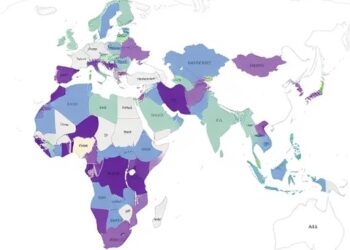Involving workers and others in society is essential to ensure Brazilian industrial policies serve the country’s development goals and the public interest, a new study shows.
Involving workers and others in society is essential to ensure Brazilian industrial policies serve the country’s development goals and the public interest, a new study shows.
Limited societal involvement in the design and implementation of industrial policies in sectors such as animal protein has steered practices towards corporate welfare, proving benefits to companies but not society, researchers found.
The analysis of industrial policy plans produced since the mid-1990s shows those which were more effective had had greater involvement from labour unions or civil society. Government had asked for more from the private sector in return for its support.
The industrial policy with weakest conditions included agreements with the meat industry, where Labour unions were weak and Government funding had helped Brazilian firms to become global forces with limited gains for the public interest.
The study, by Renato H. de Gaspi, from the Central European University, and Pedro Perfeito da Silva, from the University of Exeter, is published in the journal Development and Change.
Researchers examined industrial policies for different sectors and found they had been influenced by the strength of labour unions and societal pressures. They wound significant differences between different sectors like automotive, animal protein, and pharmaceuticals.
Dr Perfeito da Silva said: “There’s always a risk policy plans could turn into corporate welfare – when money is given to companies who don’t give back to society. If you include labour unions and civil society in discussions you have a higher chance of an industrial policy which aligns with national goals.
“The growth in the power of China means all nations need to plan their industrial policy better. They need to have a relationship which does not involve businesses capturing resources from the state. If states impose less conditionalities, industrial policies have less developmental impact.”
Stricter conditions were seen in the automotive industry, where labour unions are more powerful. Private companies were given specific targets for technological innovation and job guarantees.
Dr de Gaspi said: “Rather than focusing purely on convincing business groups to invest, governments committed to a transformative economic agenda should activate other groups who can bring with them the necessary drive to divert industrial policy results towards goals which can improve society.”
The presidency of Luis Inácio Lula da Silva, a former metalworker himself, in 2002, meant that union leaders now had more sway in government policies. This counteracted the relative power of business in negotiations, empowering unions to call for better working conditions and the greater nationalization of the production chain.
This greater influence by non-business groups in industrial policymaking seems to be making a comeback in Lula’s new government. The new mission-based Industrial Policy plan points towards conditionalities and specific metrics, although they are still underspecified. One can only hope that lessons from the past make a difference for current developmental attempts.
Journal
Development and Change
Method of Research
Literature review
Subject of Research
People
Article Title
The Sectoral Politics of Industrial Policy Making in Brazil: A Polanyian Interpretation
Article Publication Date
27-May-2024




